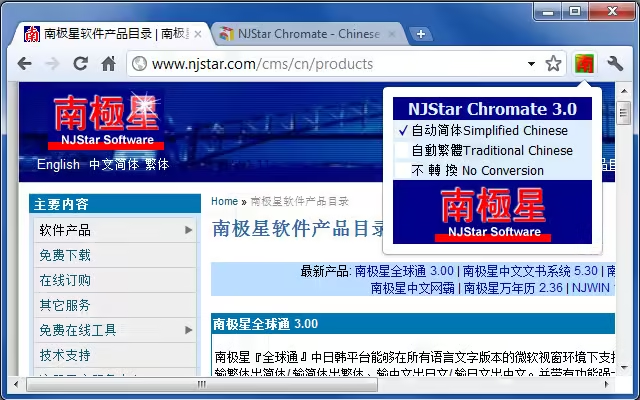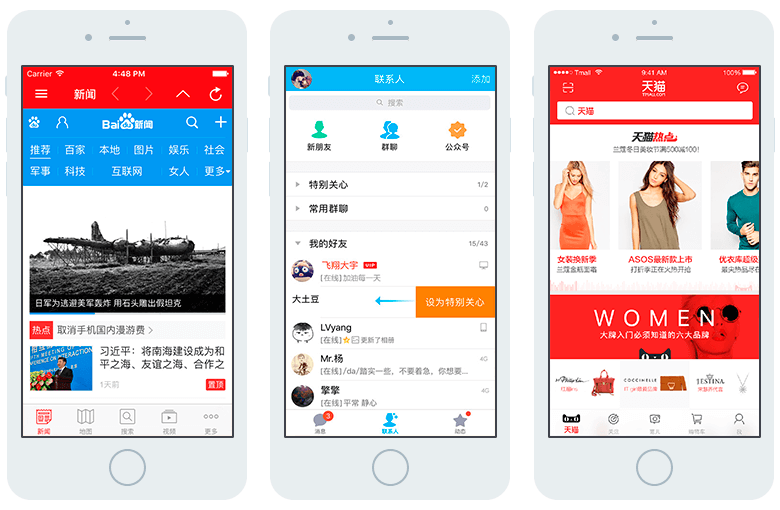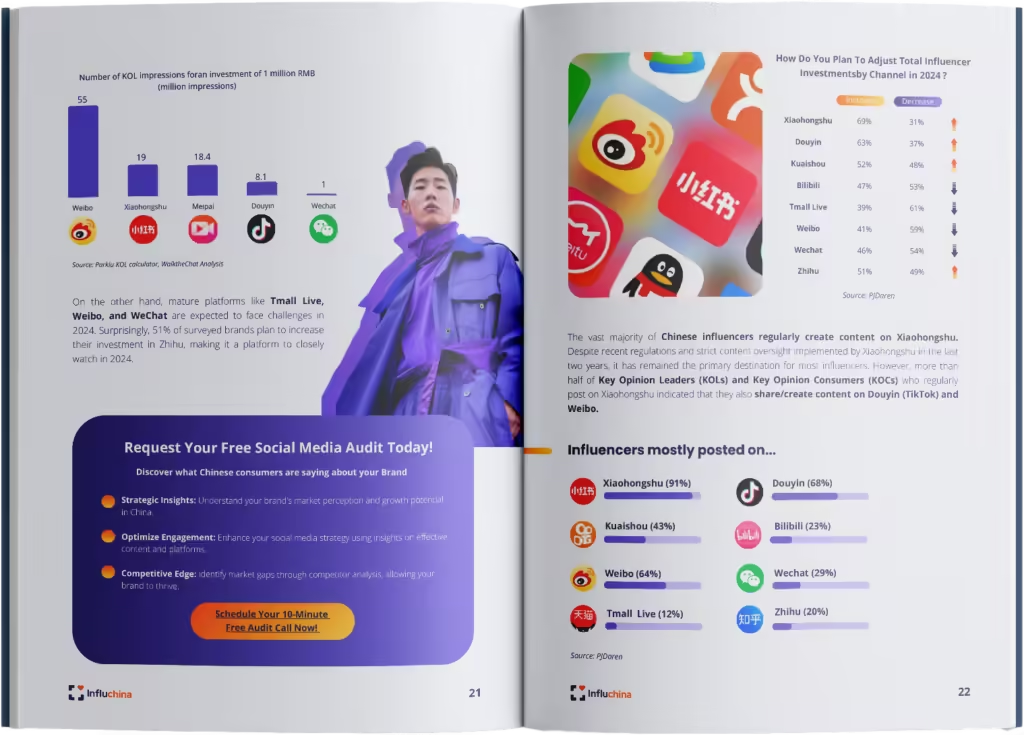TL;DR | How to Adapt Your Website in Chinese
Adapting your website for the Chinese market is essential for brands seeking visibility and trust in China’s fast-growing digital landscape. With over 1 billion internet users and a booming eCommerce sector, a localized website in Simplified Chinese can dramatically improve engagement—especially for B2B, hospitality, and luxury industries. From Baidu SEO and local hosting to mobile optimization, understanding China’s online ecosystem is key to success.
Adapting your website in Chinese is a strategic move to tap into the vast and rapidly growing market in this country. While creating a localised website in Chinese is essential for some industries, it’s important to recognize that it may not always be necessary, depending on your specific sector.
While creating a localised website in Chinese is essential for some industries, it's important to recognize that it may not always be necessary, depending on your specific sector.
However, for industries such as B2B in China, hospitality, and luxury goods, having a localized website in Chinese can significantly enhance your chances of success. In these sectors, Chinese consumers often expect a tailored experience that aligns with their language and cultural preferences.
China is currently the world’s largest internet market, with over 1 billion internet users and a booming e-commerce sector in China that generated over $2 trillion in sales in 2023. These figures highlight the enormous business opportunities available to both local and international companies.
In this article, we will explore the best practices for creating your website in China, whether you choose to localise it fully in Chinese or maintain it in English with strategic adaptations. We will also cover the importance of local hosting, compliance with Chinese regulations, and optimising your site for Chinese search engines like Baidu.
Additionally, we’ll discuss key strategies for enhancing the user experience for Chinese visitors, from language localization to mobile optimization, ensuring your website is well-received in this dynamic market.

1. Customise your Content for Local Audiences
When targeting the Chinese market, it’s crucial to adapt your content specifically for local audiences by offering your website in Simplified Chinese, which is the standard in mainland China. Failing to do so can result in low engagement and a poor user experience for Chinese visitors. If fully translating your entire website feels overwhelming, focus on localising key pages like the homepage and critical product or service landing pages.
If fully translating your entire website feels overwhelming, focus on localising key pages like the homepage and critical product or service landing pages.
Remember, there’s a significant difference between simple translation and effective localization. Instead of just translating text, it’s important to localise content by considering cultural nuances and language preferences specific to the Chinese market. This ensures that your website’s messages are understood and resonate with local consumers.
Partnering with a professional translator experienced in your industry is a wise move. Additionally, having your localised content reviewed by a local team or Marketing agency can help catch any potential issues and ensure accuracy.

2. Be Mindful of Political Sensitivities
Political sensitivities are a critical consideration when operating in China, as foreign companies have faced significant consequences for missteps. A notable example occurred in January 2018, when Marriott’s website was temporarily shut down in China for listing Taiwan, Tibet, Hong Kong, and Macau as separate countries in a customer survey.
This incident highlights the importance of being vigilant about how geopolitical issues are handled on your website, as Chinese authorities are increasingly strict in monitoring foreign businesses.
In addition to how regions are labelled, it’s essential to avoid content that could be interpreted as supporting political movements or ideologies that contradict the official stance of the Chinese government.
This includes being cautious about the imagery, maps, or symbols used on your site. For instance, ensure that maps accurately reflect Chinese territorial claims, and avoid using symbols or references that could be seen as politically charged.
It’s essential to avoid content that could be interpreted as supporting political movements or ideologies that contradict the official stance of the Chinese government.
3. Optimise for Local Search Engines
Optimising your website in Chinese requires a deep understanding of local search engine dynamics, much like any effective SEO strategy. While Baidu remains the dominant search engine in China, with the largest market share, it’s also important to consider other popular search engines like 360 Search and Sogou, which are widely used by Chinese internet users.
To maximise your website’s visibility across these platforms, ensure that your site is easily crawlable by search engine bots, incorporates relevant keywords, and is supported by high-quality backlinks.
To improve your ranking on Baidu and other local search engines, consider the following strategies:
- Register Your Website with Baidu: Start by creating a Baidu account and officially registering your website. Baidu tends to prioritise sites that are part of its ecosystem, so this step is crucial for better rankings.
- Localise Keywords and Tags: Use keywords and meta tags that resonate with your Chinese audience. This includes incorporating popular search terms in Simplified Chinese that are relevant to your industry.
- Categorise Your Website Appropriately: Properly categorise your website according to Baidu’s guidelines. This helps the search engine understand your site’s content and relevance, improving your chances of ranking higher.
- Build High-Quality Backlinks: Just like with Google, backlinks play a significant role in Baidu’s ranking algorithm. Focus on building links from reputable Chinese websites to enhance your site’s credibility and authority.

4. Ensure Fast Website Loading Times for your Website in China
Optimising the loading speed of your website in China is crucial for delivering a positive user experience, especially given the challenges posed by the Great Firewall. This digital barrier can significantly slow down websites hosted outside of China, so it’s essential to take steps that enhance your site’s performance within the country.
To ensure your website in China loads quickly, consider hosting it on local servers or utilising a content delivery network (CDN) with servers based in China. Additionally, using a local domain name (such as .cn) can improve accessibility and speed for Chinese users, making it easier for them to find and navigate your site.
To ensure your website in China loads quickly, consider hosting it on local servers or utilising a content delivery network (CDN) with servers based in China.
When planning your website’s resources, it’s important to verify that all elements are accessible within mainland China. Avoid using services or tools that are blocked by Chinese government regulations, and if necessary, replace them with alternatives available inside China to maintain functionality and speed.
Here are some key strategies to optimise your website in China for faster load times:
- Host Locally or Use a China-Based CDN: Hosting your website on servers within China or using a CDN with Chinese servers reduces the distance data needs to travel, significantly improving load times.
- Simplify Your Website: Reduce the size and number of images, plugins, and other heavy resources that can slow down your website. Compress images and streamline your site’s code to make it as lightweight and efficient as possible.
- Implement Caching: Use caching to store elements of your site locally on users’ devices. This can speed up loading times for returning visitors by reducing the amount of data that needs to be reloaded.
- Avoid Blocked Services: Ensure that your website in China doesn’t rely on services or tools that are blocked within the country. For example, avoid using Google services, which are not accessible in China, and consider local alternatives like Baidu Maps.
- Optimise for Mobile: Given that most Chinese users access the internet via mobile devices, it’s essential to ensure your site is fully optimised for mobile browsing. A responsive design that loads quickly on smartphones is critical.
A slow-loading website in China can frustrate users, leading to higher bounce rates and reduced traffic, which can negatively impact your business.
5. Prioritise Mobile Optimization for your Website in China
Given the massive mobile user base in China, optimising your website in China for mobile devices is absolutely essential. By June 2022, the number of mobile internet users in China had reached 1.05 billion, accounting for 99% of the country’s total online population. This means that if your website isn’t mobile-friendly, you could be missing out on a vast potential audience.
Mobile optimization isn’t just about accessibility—it also significantly impacts your website’s visibility. Baidu, the dominant search engine in China, favours mobile-friendly websites, giving them higher rankings in search results. Therefore, ensuring your website in China is optimised for mobile use can enhance your search engine performance and help you reach more users.

Mobile optimization isn’t just about accessibility—it also significantly impacts your website’s visibility.
Furthermore, China’s digital ecosystem is unique, with its own social media platforms, messaging apps like WeChat, and mobile payment systems. These platforms are predominantly accessed via mobile devices. A mobile-optimised website not only improves user experience but also integrates more seamlessly with these platforms, which is crucial for executing effective multi-channel marketing campaigns in the future.
Ready to Adapt your Website in China?
If you’re looking to adapt your website in China, our team at Influchina is here to help. Let us craft your market entry strategy by developing a tailored website, complemented by a comprehensive marketing plan that leverages Chinese social media and search platforms. Contact us today to start building your presence in the Chinese market with a strategy designed for success.
At InfluChina, we specialize in helping international brands localize and grow in the Chinese digital ecosystem. From website adaptation and Baidu SEO to WeChat and Xiaohongshu marketing, our team ensures your brand connects authentically with Chinese consumers and achieves measurable results.

